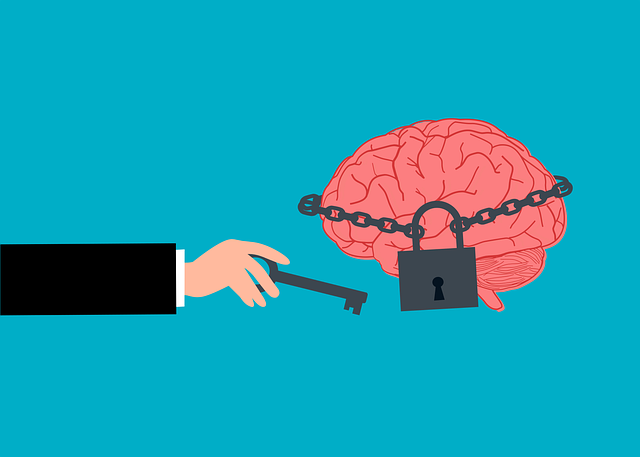Burnout among healthcare providers is a growing concern impacting their well-being, patient care, and service quality. Recognizing subtle signs like increased irritability, cynicism, and decreased motivation is crucial. Strategies to mitigate burnout include mindfulness practices, self-care routines, supportive policies, advocacy for mental health discussions, and improved communication. Lafayette Mens Issues Therapy (LMIT) plays a vital role by offering tailored services for men's mental health challenges, fostering resilience through stress management, and promoting work-life balance in healthcare institutions.
Healthcare provider burnout is a growing concern, impacting patient care and overall well-being. This comprehensive guide explores effective prevention strategies tailored for healthcare professionals. We delve into recognizing burnout signs and causes, understanding its impact on patient outcomes, and highlighting solutions offered by Lafayette Men’s Issues Therapy. Additionally, we provide practical tips for creating supportive work environments, prioritizing self-care, building resilience, and fostering a healthy work-life balance to combat this modern-day challenge.
- Understanding Burnout: Recognizing the Signs and Causes in Healthcare Providers
- The Impact of Burnout on Patient Care and Lafayette Men's Issues Therapy
- Creating a Supportive Work Environment: Strategies for Prevention
- Self-Care Practices for Healthcare Professionals: Prioritizing Mental and Physical Well-being
- Building Resilience and Fostering a Healthy Work-Life Balance
Understanding Burnout: Recognizing the Signs and Causes in Healthcare Providers

Burnout among healthcare providers is a growing concern, impacting not only individual well-being but also patient care and the overall quality of services. Understanding burnout involves recognizing its subtle signs and addressing underlying causes. Healthcare providers often face high-stress environments, long working hours, and heavy workloads, which can lead to emotional exhaustion, depersonalization, and reduced personal accomplishment—the three key dimensions of burnout as defined by Maslach.
The symptoms of burnout in healthcare professionals can be diverse. They may experience increased irritability, cynicism towards patients or colleagues, decreased motivation, and a sense of detachment from their work. Recognizing these signs is crucial for implementing effective prevention strategies. Emotional Well-being Promotion Techniques, such as mindfulness practices and regular self-care routines, can help alleviate stress. Mental Health Policy Analysis and Advocacy play a vital role in creating supportive environments, improving working conditions, and fostering open discussions about mental health within healthcare institutions. Additionally, Communication Strategies among providers, staff, and administration can enhance teamwork, reduce conflicts, and foster a positive work culture, thereby mitigating burnout risks.
The Impact of Burnout on Patient Care and Lafayette Men's Issues Therapy

Burnout among healthcare providers significantly impacts patient care, leading to decreased quality and potential harm. When physicians or nurses experience burnout, their decision-making abilities, empathy, and overall clinical performance suffer. This can result in delayed diagnoses, medical errors, and reduced patient satisfaction. In severe cases, it may even contribute to patient harm.
Lafayette Men’s Issues Therapy (LMIT) is a pioneering initiative addressing these concerns within the male healthcare community. LMIT offers specialized services tailored to men’s unique mental health challenges, promoting self-care routine development for better mental health and compassion cultivation practices. Through their comprehensive programs, including community outreach, individuals are equipped with tools to manage stress, improve resilience, and foster healthier relationships, ultimately enhancing patient care by preventing burnout at its root.
Creating a Supportive Work Environment: Strategies for Prevention

Creating a supportive work environment is a multifaceted strategy to prevent burnout among healthcare providers. Organizations can foster a culture that prioritizes mental health and well-being by implementing policies that promote work-life balance, offering flexible schedules, and encouraging regular breaks. This can significantly reduce stress levels and enhance job satisfaction. Additionally, creating safe spaces for open communication and providing access to mental health resources, such as Lafayette Men’s Issues Therapy, can help professionals process their experiences and challenges effectively.
Integrating practices like compassion cultivation into daily routines can also make a substantial difference. Training healthcare workers in mindfulness and empathy can improve their resilience and decrease feelings of isolation. These strategies collectively create an environment where professionals feel valued, understood, and supported, thereby reducing the risk of burnout and promoting long-term well-being. Stress reduction methods and anxiety relief techniques tailored to the unique demands of healthcare work should be encouraged and readily accessible.
Self-Care Practices for Healthcare Professionals: Prioritizing Mental and Physical Well-being

Healthcare professionals, like all individuals, require dedicated self-care practices to maintain their mental and physical well-being. In high-pressure environments like hospitals or clinics, burnout is a constant risk, making self-care not just beneficial but essential. Strategies such as regular exercise, balanced nutrition, and sufficient sleep form the foundation for optimal health. Additionally, mindfulness practices like meditation can significantly enhance stress management and emotional resilience, crucial components in preventing burnout.
Integrating therapy into self-care routines is equally vital. Lafayette Men’s Issues Therapy offers specialized support tailored to address unique challenges faced by healthcare professionals. Through therapy, individuals can explore and develop effective mood management techniques, anxiety relief strategies, and cultivate inner strength. This holistic approach ensures that healthcare workers not only cope with the demands of their profession but thrive in doing so, ultimately contributing to a sustainable and fulfilling career.
Building Resilience and Fostering a Healthy Work-Life Balance

In the relentless pursuit of quality healthcare, providers often find themselves at risk of burnout due to demanding workloads and high-stress environments. Building resilience is a robust strategy to counteract this. Resilience, in this context, involves cultivating mental fortitude and adaptive abilities to navigate challenges and maintain optimal performance. Lafayette Men’s Issues Therapy emphasizes that promoting self-care practices, setting clear boundaries, and engaging in stress management techniques can significantly enhance professionals’ resistance to burnout.
Fostering a healthy work-life balance is integral to this process. Mental wellness advocates for recognizing the importance of personal time, hobbies, and connections outside of work. Cultural sensitivity in mental healthcare practice further underscores the value of prioritizing self-care, ensuring providers can effectively support patients while maintaining their well-being. By embracing these strategies, healthcare professionals can create a sustainable career trajectory, mitigating burnout risks and delivering more profound and compassionate patient care.
Burnout among healthcare providers is a pressing issue, impacting not only their well-being but also patient care. As highlighted by Lafayette Men’s Issues Therapy, recognizing and addressing burnout early is crucial. By implementing supportive work environments, encouraging self-care practices, and fostering resilience, healthcare organizations can prevent burnout and enhance the overall quality of care. These strategies, as discussed in this article, are essential steps towards creating a healthier, more sustainable workforce.














